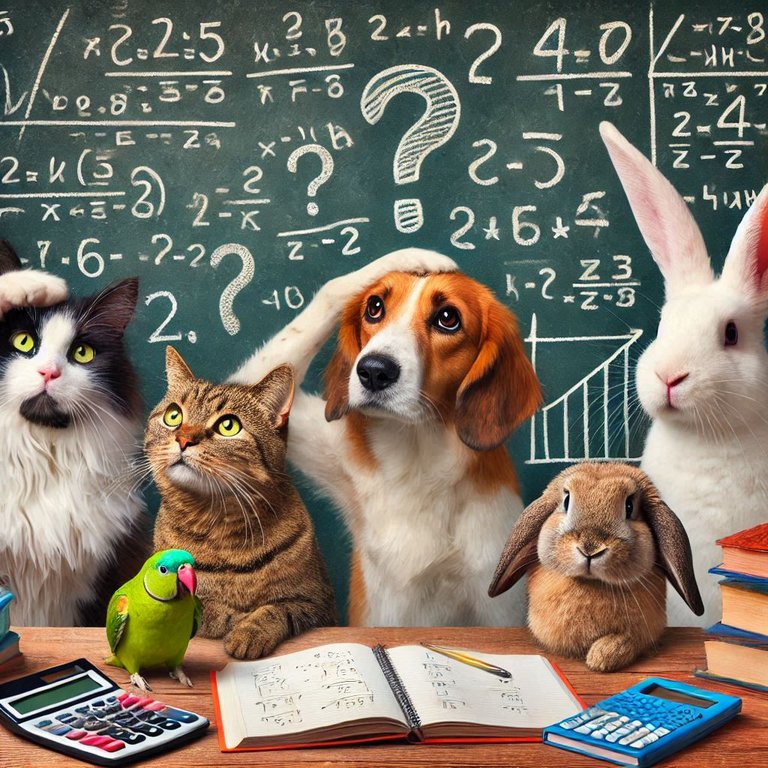Why does school insist on making math boring?
The traditional education of my time, the 80s and 90s, was basically about reading, memorizing, and staying quiet. Teachers punished anyone who stepped out of line, and curiosity was either punished or at least frowned upon.
I remember being very good at math, and I liked that with a formula, and by following the correct procedure, you always arrived at one and only one correct answer.
But the bad thing, and what I've been thinking about for a long time, is that we were never taught how we could apply those complicated formulas. For example, what is the real-life use of a square root, a quadratic equation, or a limit?
Honestly, even today, I have no idea what all that knowledge would be useful for, most of which I have already forgotten because once school is over, you never talk about it again.
I don't know if the way of teaching math has changed, but I really hope it has, so that we don't end up in a distant future like in an Isaac Asimov story, where math calculations were taught again using pencil and paper, and not calculators or computers, because it was cheaper to send crew-guided missiles than to lose a machine!
Let's hope reality doesn't surpass fiction, but it would be interesting to focus the teaching of math and science in general in a fun, practical, and not abstract way, so that learning is lasting and deep, and not just memorizing formulas that we will later forget forever.
And you, dear Hiver, do you know how to apply all those math formulas you studied in elementary, high school, and even university to real life? I thank you in advance for visiting this blog, and I encourage you to participate in the contest organized by @gwajnberg, which you can see at this link.

Source/Fuente
Original text in Spanish translated by Copilot de Bing
¹Cuento La Sensación de Poder (Isaac Asimov)
Por qué la escuela se empeña en hacer aburridas a las matemáticas?
La educación tradicional de mi época años 80 a 90's, era básicamente leer, memorizar y callar.
Los maestros castigaban a culquiera que se saliera de la norma, y la curiosidad era castigada o al menos, mirada con disgusto.
Recuerdo que yo era muy buena en matemáticas, y me gustaba que con una fórmula, y siguiendo el procedimiento adecuado, llegabas siempre a una y sólo una respuesta correcta.
Pero lo malo, y lo que vengo pensando desde hace tiempo, es que nunca nos enseñaron en qué podríamos aplicar esas fórmulas complicadas, por ejemplo, para qué sirve en la vida real una raíz cuadrada o una ecuación cuadrática o un límite?
Sinceramente aún hoy no tengo la más pálida idea de para qué nos servirían todos esos conocimientos, la mayoría de los cuales ya he olvidado, porque terminada la escuela, ya no vuelves a hablar de ellos.
No sé si haya cambiado la forma de enseñar matemáticas, pero de verdad espero que sí, para que no terminemos en un futuro lejano çcomo en un cuento¹ de Isaac Asimov, en el que se volvía a enseñar a relizar cálculos matemáticos usando lápiz y papel, y no calculadoras o computadoras, porque era más económico enviar misiles guiados por tripulación que perder una máquina!
Esperemos que la realidad no supere a la ficción, pero sería interesante enfocar la enseñanza de las matemáticas y las ciencias en general de manera divertida, práctica y no abstracta, para que así el aprendizaje sea perdurable y profundo, y no simplemente memorizar fórmulas que más adelante olvidaremos para siempre.
Y tú querido Hiver, sabes en qué aplicar a la vida real todas esas fórmulas matemáticas que estudiaste en primaria, secundaria y hasta en la universidad? Desde ya les agradezco haber pasado por este blog, y los animo a participar del concurso organizado por @gwajnberg que pueden ver en este vínculo.







